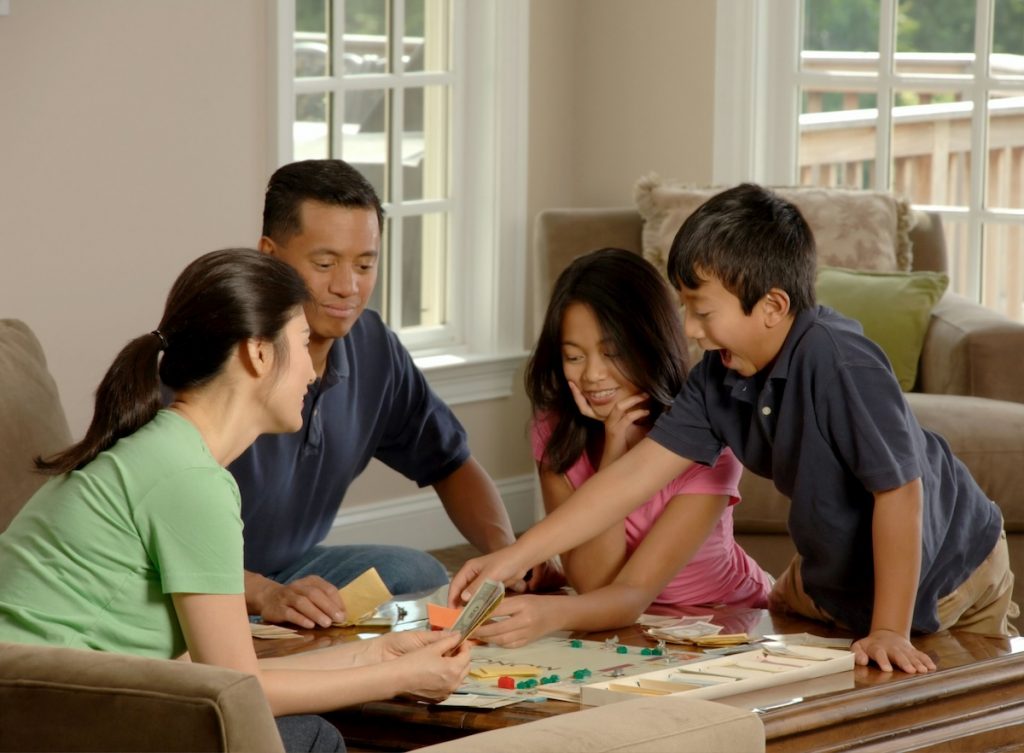Having children help out with household chores helps them learn essential life skills such as responsibility and independence. It also makes them feel like a contributing member of the family.
Even if you have a helper, giving children chores is a good habit that helps create a good work ethic and cuts back on children’s entitlement. As much as it is tempting to help your child with every task, we suggest you don’t.
Research indicates that those children who do have a set of chores have higher self-esteem, are more responsible, and are better able to deal with frustration and delay gratification, all of which contribute to greater success in school.
It is good to start children with chores from an early age and keep in mind that you need to teach them how to do their tasks. Show them how to do it and compliment them when they do a good job.
Avoid these when getting kids to start on chores:
- Don’t insist on perfection. It would get frustrating and upsetting for children if they continuously fail to meet your standards. With age, they would get better at their tasks and be able to do it properly.
- Don’t be inconsistent. We want chores to form a habit, so this requires consistent effort. Once kids start on their errands, encourage them to keep it up and continue with their chores regularly. Allowing them to postpone it could promote a habit of escaping the chore.
- Go easy on deadlines. This would depend on their age. Young kids may not have a firm grasp of time, so it may be easier to tie chores to another activity and not force them to finish it within a short timeframe. For example, if they need to make their bed and brush their teeth before they eat breakfast, wait for them to finish their chores before serving breakfast.
You can start chores with toddlers from as young as one year old. We’ve put a list of suggested chores for kids, depending on their age.
Up to 3 years
Toddlers may not understand what responsibility is. But they can still be taught simple chores which would go on to form a sense of housekeeping expectations in your household such as:
- Keeping away toys after play or playing with one toy at a time
- Washing their hands before/after a meal
- Eating on their own
- Putting on their shoes and keeping their shoes properly
- Brushing their teeth
- Getting dressed with little help
- Help to feed pets
At this age, they will probably be a little messy, but it’s alright. It is the act of the child attempting the chore that is important and not how perfect he/she can do it. Continue to encourage them, giving them minimal help so they can learn to perform such tasks confidently on their own.
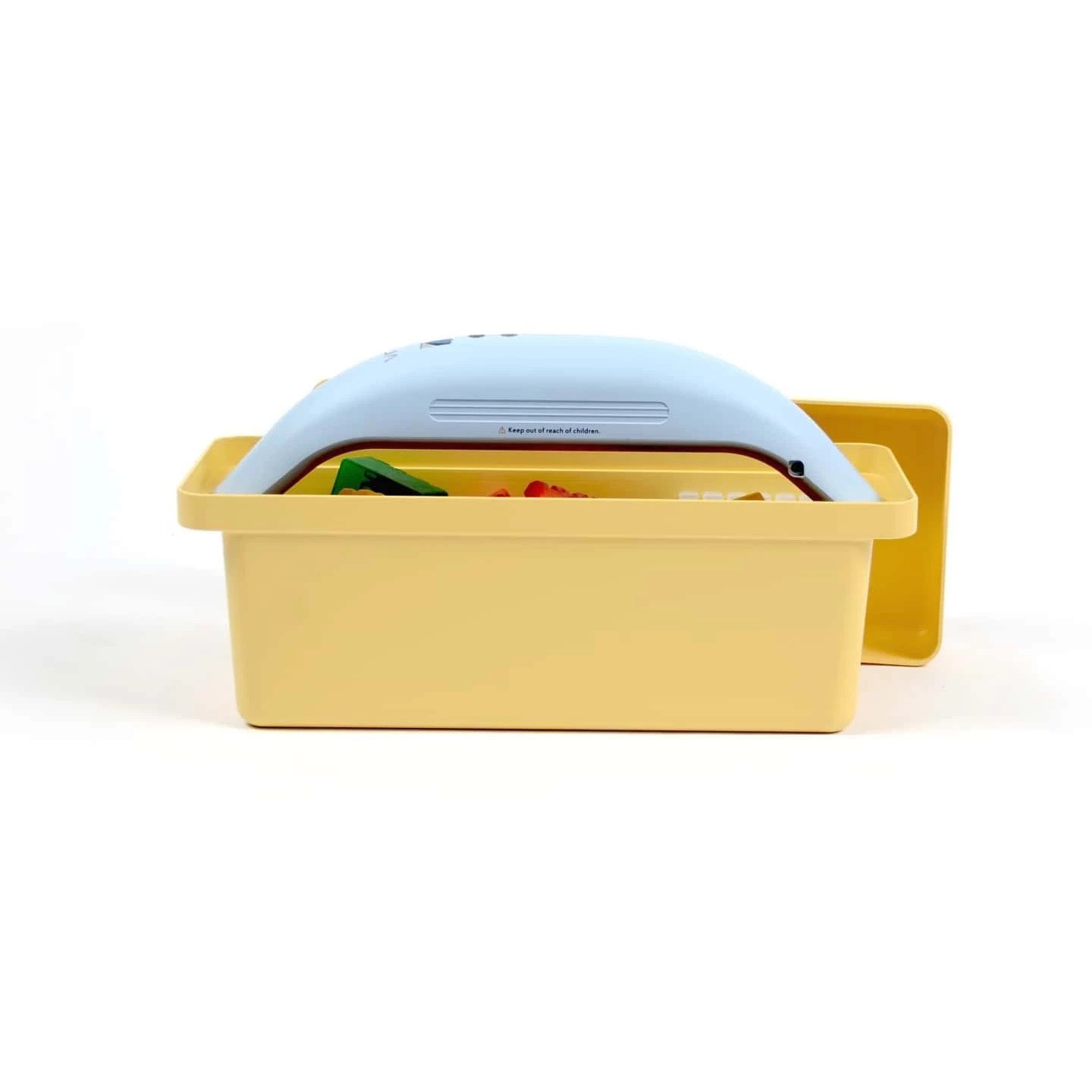
Have coloured big boxes to help kids keep their toys away easily. We found this Vray Happy Box ($119.00) comes with built-in steriliser in the cover where you can quickly sterilise toys after play too!
3-5 years
At this age, pre-school kids can communicate and understand simple instructions. As they start school, they may also be able to do a few more tasks each day.
- Make their beds
- Putting dirty laundry in the basket
- Getting ready for school
- Prepare simple meals such as pouring breakfast juice or milk and scooping their cereal
- Use the toilet seat and flush after use
- Setting the table
- Taking care of pets such as feeding and walking dogs
- Keeping their books or toys on appropriate shelves.
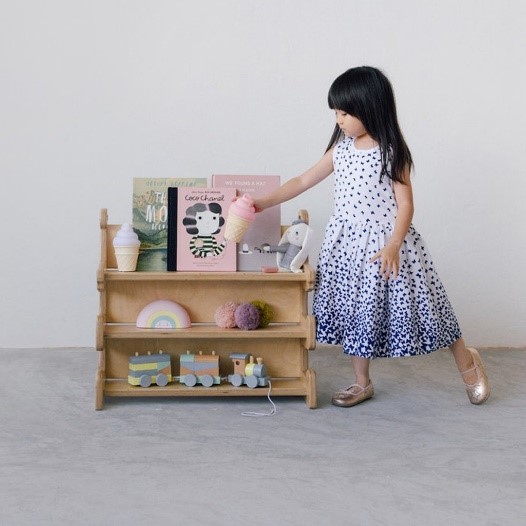
Having a child-sized bookshelf like the Essa Grace Big Mike Monster Bookshelf ($265.00), will help kids with their chores.
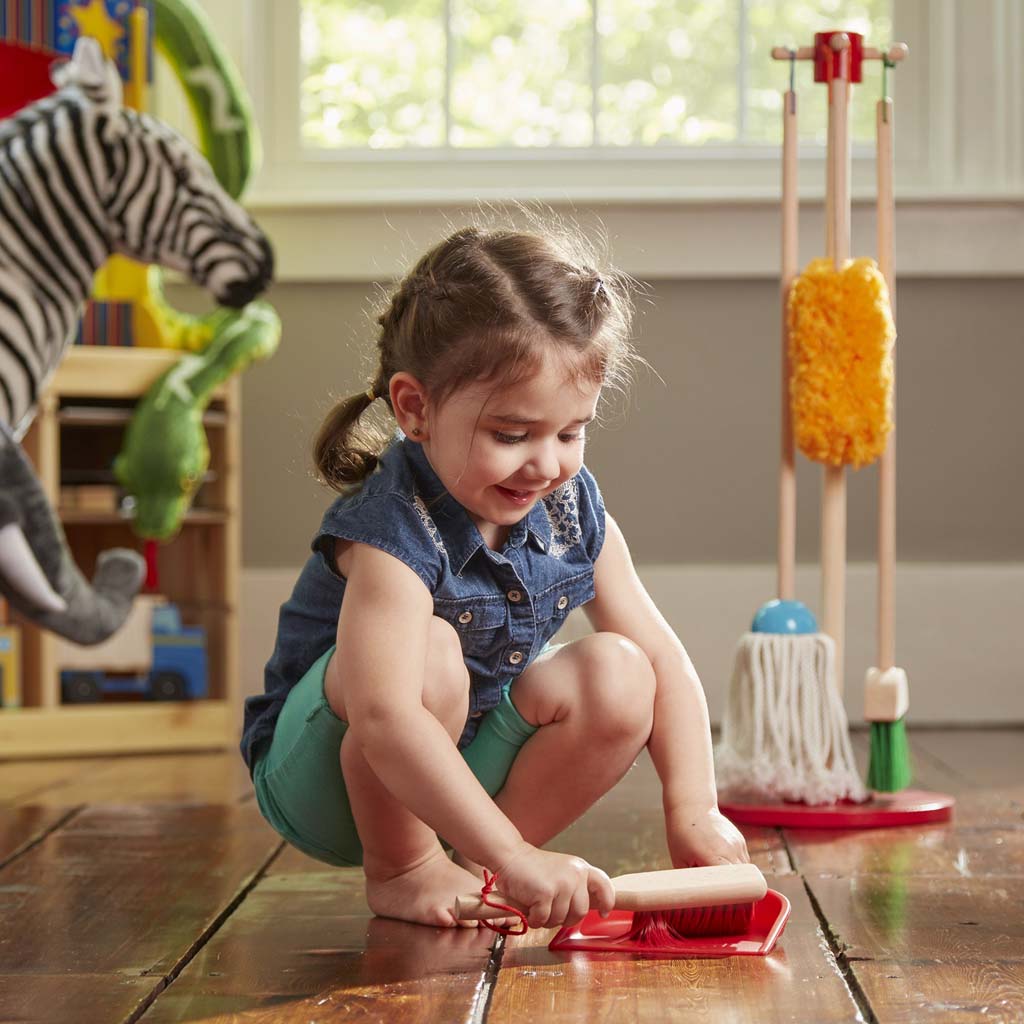
To get them into the habit of cleaning their rooms, start with Melissa and Doug Play House – Dust, Sweep, Mop ($49.90) to teach them how to perform their chores.
6-8 years
Now that they have started formal schooling, they would begin to learn how to work with their classmates. This stage is where they may become less enthusiastic about chores and may need incentives to get them to continue with the habit. You could let them earn privileges when they complete their chores. For example, they are allowed 30 mins of screen time or outdoor play when they complete specific tasks.
- Folding and putting away clothes
- Vacuum, mop or sweep
- Buying groceries
- Help with simple meal preparation such as making sandwiches
- Washing dishes with some help
- Finishing their homework at a specific time
- Bringing the mail in
- Taking out the trash
- Keeping their bedroom clean and tidy by throwing rubbish into bins and general cleaning such as keeping their belongings properly
- Helping to watch over younger sibling with some help
9-12 years
At this age, you could teach them to use electronics safely in the house, such as ironing and cooking with some supervision. Giving them these chores will also allow them to learn how to live independently on their own in future.
- Washing the car
- Washing and scrubbing windows/bathroom
- Gardening or cleaning chores involving common living areas
- Clean fragile items such as glass
- Cook simple dishes
- Using the washing machine and ironing
- Washing shoes
- Helping to care for elderly family members
- Helping to care for younger siblings or help them with their chores
It may also help for you to put up weekly schedules to track progress. You could draw up a weekly plan on Essa Grace Family Chalk Board ($275.00) and tick off each task done when they complete it.
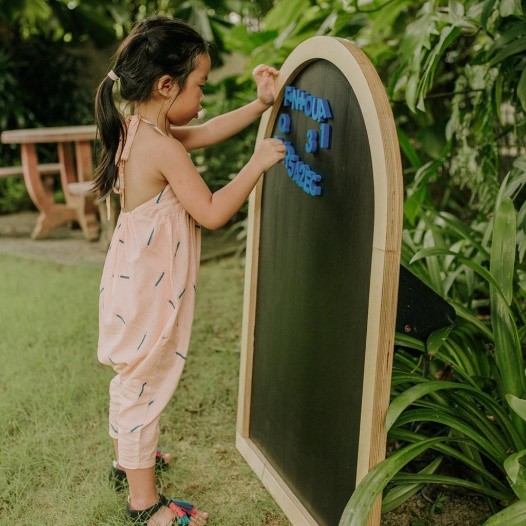
Tweens and older
As they get older, you will probably face higher resistance to chores. While it is normal to have a rebellious teenager, keep in mind that at this age, they may also face more pressure in school and may not feel up to the task of taking up more responsibilities. We suggest taking a different approach when they are this age.
Have family meetings where everyone discusses their roles and responsibilities in the household. You may also wish to consider giving teens exceptions when they are preparing for their exams.
Some families may give an allowance, but some are against it. Whatever your decision is, you should be specific and have your children agree to the arrangement.
Allow teens to take more responsibility by allowing them to set their schedule and doing it on their own instead of nagging at them to do it every day.
Assign your teens chores that can also be tied to acquiring life skills. For example, if you’d like them to learn about budgeting, you could involve them in managing household expenditure, such as giving them a budget for bill payments or grocery shopping.











